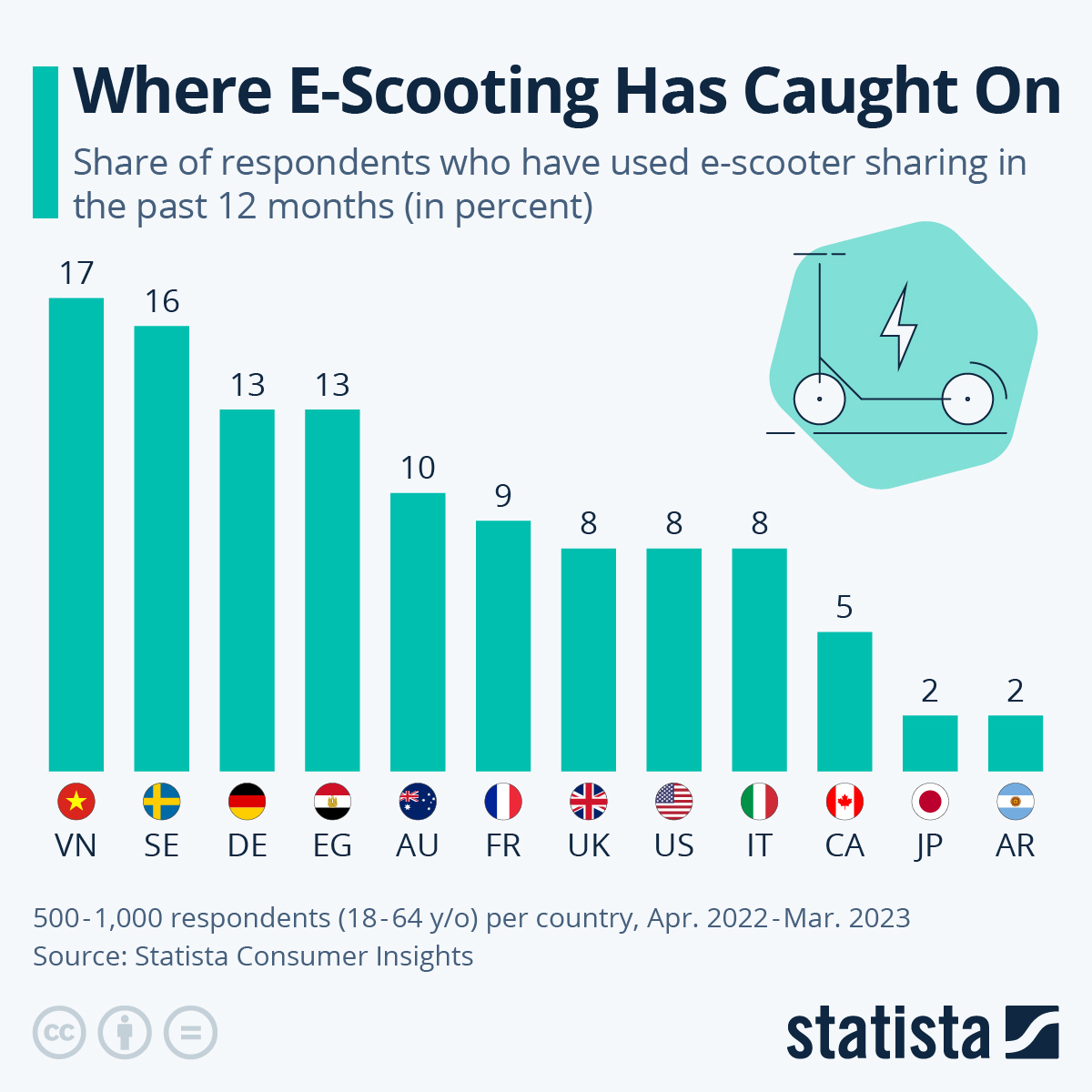Paris has become the first capital in Europe to say goodbye to rental electric scooters, following a referendum in the city earlier this year which saw 90 percent of voters support a ban - although there was only an 8 percent turnout of Parisians eligible to vote. The new rule came into force as of September 1. Privately owned scooters are still permitted.
The following chart uses data from Statista Consumer Insights’ macro survey to show where use of rental scooters is more and less commonplace. In France, rental battery powered scooters were used by just 8 percent of respondents in the past year. Germans and Swedes were slightly more likely to have used them at 13 percent and 16 percent, respectively. In Japan, where regulations have been more stringent on the topic than in Europe (at least until recently), only two percent of respondents said that they had used them in the past year.
According to Statista’s Market Outlook, global revenue for the e-scooter sharing market is projected to reach US$1,813.00m in 2023 with an annual growth rate (CAGR 2023-2027) of 11.61 percent, resulting in a projected market volume of US$2,813.00m by 2027.
The five key players of 2022 were Lime (making up 14 percent of the global market share), Lyft (13 percent), Bird (11 percent), Bolt (9 percent) and Tier (9 percent).















